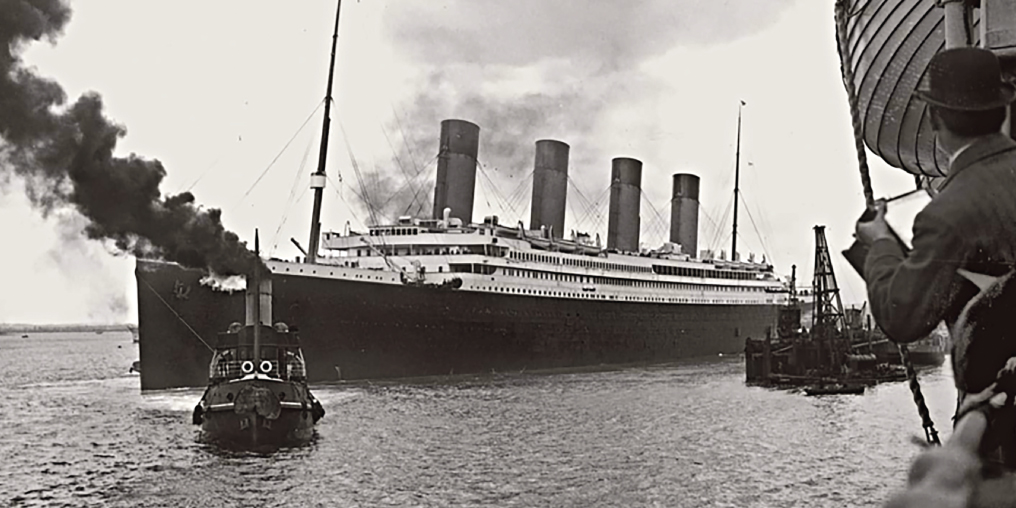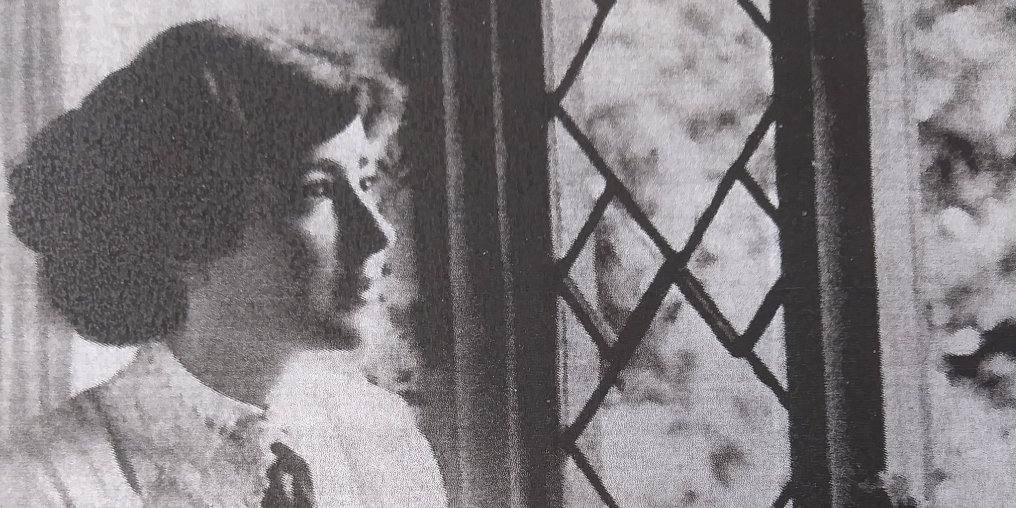It was April 1912 when Hilda Mary Slayter packed her travel trunk with an elegant trousseau in preparation for her impending wedding to Henry Lacon of Denman Island. She was excited and impressed by the splendid ship on which she’d booked passage, a state-of-the-art liner about to make its maiden voyage from England to America.
As she left Britain, Hilda must have been filled with eager anticipation, although maybe also a bit of apprehension about the new life that awaited her on Denman, a remote little island off Canada’s West Coast. She had never experienced that kind of place. Added to that, at the age of thirty, she was going to become a married woman, and possibly, in due time, a mother. It would no doubt be a great adventure.
However, the “adventure” started much sooner than Hilda expected: the luxurious ship she set sail on would never reach its North American destination.
The sinking of the magnificent Titanic sent shock waves around the world. Over 1500 passengers, many of them rich and famous figures of the day, perished. Hilda herself survived the greatest marine disaster prior to World War I.
According to the accounts of other survivors, Hilda behaved admirably, staying calm amid panic, and helping others board the lifeboats ahead of her. Nevertheless, it was a horrific ordeal, and in her journal, Hilda recorded the anguish of hearing the screams of hundreds of people as they drowned around her in the frigid waters.
When she finally arrived in New York aboard the rescue ship Carpathia, she was besieged by members of both American and Canadian press who wanted her first-hand witness account. After a few weeks, she was able to complete her journey to Denman Island, where she married Henry Lacon.

TITANIC DEPARTING SOUTHAMPTON, 10 APRIL 1912, WIKIMEDIA COMMONS
By 1913, Hilda and Henry’s only son, Reginald, was born. The Lacons’ island home was very isolated and even a trip to the store or ferry entailed a long, rough journey by horse and buggy. Neighbours were few and far between, but Hilda would cheerfully visit them, bringing the baby with her. She even held parties at her house for other young mothers with children. Nevertheless, settling on Denman must have been a difficult transition for a sophisticated young woman. It was not the life that she had once envisioned.
In fact, Hilda had dreamed of a career as an opera singer. Her mother, a professional musician, took her daughter from Nova Scotia to Europe to become an opera singer. Not only did Hilda learn to sing in Italy, she also led a very glamorous social life, mingling with many of Europe’s glitterati. Members of the English and German royal families were among her acquaintances, as were many famous artists and musicians of the era.
But after several years, it became apparent that Hilda was not sufficiently talented to become a star. Eventually, her brothers, who had supported her lifestyle, gave up and advised her to find a husband.
Hilda was nothing if not adaptable. In 1910, she found herself a seemingly eligible suitor in England: Henry Reginald Lacon, a minor member of the British aristocracy.
Born in Canada, but raised in England, Henry had not excelled at Eton school, nor had he pursued any higher education or career. Presumably, he was a disappointment to his family, who sent him off to colonial Canada after he and Hilda were engaged. He arrived on Denman Island a year ahead of his future bride, and had a house built for them on a large acreage on the south end of the island.
When World War I broke out, Henry enlisted in the naval reserve and was posted to Halifax, Nova Scotia. Fortuitously, Halifax was where Hilda’s family came from, so she and her infant son were happy to accompany him there, little knowing they would experience yet another dreadful Canadian disaster in a few years’ time: the great Halifax explosion of December 1917.
Once again Hilda survived, as did her family, but the city and its population were devastated by the explosion caused by the collision of two ships in the harbour, one of which carried deadly explosives. Part of the city was wiped out entirely; close to 2,000 people were literally blown to bits, and 9,000 more were badly maimed. It was the worst human-made explosion prior to the detonation of the atomic bomb.
For Halifax residents, it must have seemed like a scene from hell. Hilda’s part of the city suffered less than some, but her house was damaged by the blast. Characteristically, she focused on helping several of her less capable neighbours.
After experiencing two such traumatic disasters, it’s a wonder that Hilda did not suffer from PTSD. But she seems to have always “kept calm and carried on,” even in the face of difficulties that continued to challenge her during her life.
After the First World War, the family returned to Denman Island, only to find that their house, which they had left with a couple of supposed caretakers, had, in fact, been abandoned and was in ruins. Hilda set about restoring the house, and then cheerfully plunged into helping out in the community. In particular, she was instrumental in founding and supporting the Denman’s Anglican church, St. Saviour. She was also a very active member of the Women’s Institute and contributed generously to many charities.
However, misfortune continued to dog her. In the early 1920s, the family’s house, which was filled with furniture Hilda had imported from England, burned to the ground. Undaunted, she had it rebuilt, but 13 years later, the house burned down yet again.
Hilda Slayter Lacon had a remarkable ability to bounce back from disaster. Perhaps she was also buoyed by a keen sense of humour, commenting once to a neighbour: “I can no longer sing opera because my two top notes went down with the Titanic.”

